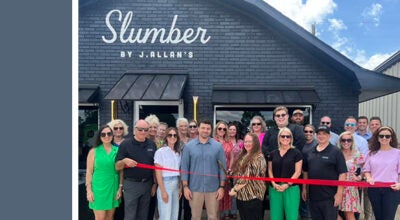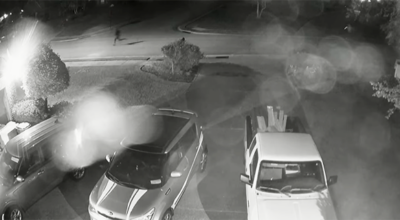155-year-old Mississippi country church finds renewed life
Published 5:50 am Sunday, May 15, 2022
New Hope Church, on a country road halfway between Houlka and Okolona, was founded on Oct. 6, 1866, less than a year after the Civil War ended.
On that day, Isaac Mullins and William Gaskin deeded ground to the Methodist Episcopal Church South “for the establishment of a church on that site,” according to church records. There has been a church on that site ever since.
The cemetery behind the church is home to at least three Civil War veterans. They share the shaded graveyard with community members who’ve called this rural corner of Chickasaw County home for 155 years.
It’s a peaceful place. Occasionally, deer meander through the cut-over timber lot adjacent to the church. Behind the cemetery fence, vines are slowly overtaking a collection of retired tractors and implements.
The original church structure burned sometime before World War II and was replaced with the current sanctuary of white shiplap shortly after the war ended. Previously a United Methodist congregation, New Hope now identifies itself as non-denominational.
Bro. Steve Driskell is New Hope’s new pastor. The 52-year-old Brewer resident, whose wife grew up in nearby Boone’s Chapel Methodist Church, said the church, which has weathered so many storms and seen so much history, was almost shuttered permanently.
“I was told there were two people here the Sunday before we started,” he said. “They were looking at closing the doors.”
Now New Hope’s doors swing wide each Sunday morning, welcoming an active congregation of 30-35 community members happy to see the return of life to their beloved church. Driskell said that while the COVID-19 pandemic proved to be a challenge, the members of New Hope were undaunted.
“The coronavirus hit us hard, but we went through it pretty well,” he said. “The members are faithful, and we held services outside in the parking lot for a while. We continued on.”
The exterior of the church remains much as it would have looked when it was built in the mid-20th century. But walk inside, and New Hope seems to radiate just that: new hope.
Walls are freshly painted, new pews and light fixtures brighten the sanctuary, and a cheerful classroom for children flanks the kitchen/dining area, where a fresh pot of coffee fills the air with its scent.
While Driskell seems right at home in his role, he is a newly minted pastor and this is his first church. After answering a call to preach later in life and filling pulpits in the area as needed, he and his wife were called to New Hope.
Driskell continues to work a full-time job, but he somehow finds time to prepare sermons and meet the needs of his small, but growing, congregation. He said he enjoys being able to build relationships he never could as a supply preacher.
“There’s so much of a connection,” he said. “I could never have that as a pulpit supply. It makes all the difference. When I look out on Sunday morning and call these folks my brothers and sisters, I mean it from the heart, because we’ve grown together.”
Driskell said he and the members of New Hope are working hard to let their community know they’re alive and kicking.
“We had a wild game banquet in March,” he said. “We had a trunk-or-treat event here for Halloween. Last summer we had vacation Bible school. Someone said that was the first VBS they’ve had here in 32 years. We want to open our doors to everybody.”
Tasked with breathing new life into a struggling country church, Driskell said he is happy in his role, but humbled by its gravity.
“We’re happy as can be,” he said. “I never wonder if it was the right thing to do, but there are times when I feel inadequate as a pastor. The last thing I want to do is lead someone astray.”
Driskell said he understands the lure of the large church, but he believes small country churches like New Hope will continue to play a vital role in the faith formation of worshipers for years to come.
“Small country churches are still the backbone of today’s Bible Belt,” he said. “We aren’t trying to be the big church; we’re just trying to be a God-fearing, Christ-believing, preaching and teaching church. That’s what we want.”






